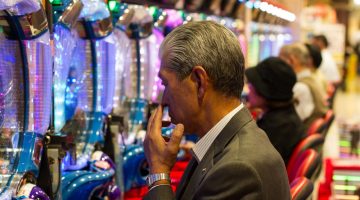Sweden Reports Huge Spike in High-Risk Gamblers Due to COVID-19

The study reveals that while the number of gamblers in the country have decreased, there is a huge spike in high-risk gamblers. The study was conducted between April 28 and May 4. A total of 2,016 Swedish people participated in the research.
Table of Contents
Interesting points
Of the research’s total respondents, 1,246 admitted that they have gambled in the past year. The respondents were also asked about their various gambling behavior during the time of the COVID-19 pandemic.
All the respondents that said that they have gambled, 11.6% of them said that they have limited their gambling activities because of the COVID-19 pandemic. On the other hand, 5.9% of the respondents that said they gamble said that their gambling activities have increased because of the pandemic. In general, the research found out that the respondents tend to limit their gambling activities because of the pandemic.
When group according to age, 17.7% of respondents aged between 18 and 24 said that their gambling activities will most likely increase because of the pandemic. On the other hand, 13% of the respondents aged between 25 and 29 said that they more likely to gamble more given the current situation.
Lastly, about 4% of respondents aged 30 and above said that their gambling habits will most likely to surge.
Result is hugely positive
Subjecting the responses to various statistical analysis, the researcher pointed that this is a hugely positive result for Sweden. The research reveal that 79% of the respondents who gamble are rated as “no risk.” Of that group, only 1.8% said that their gambling activities increased during the COVID-19 pandemic.
Moreover, 10% of the respondents fall into the “low risk” bracket. Lastly, 5% of the respondents are considered under “moderate risk.”
The research also suggests that respondents that are considered low risk find it easier to limit if not completely stop their gambling activities during the COVID-19 pandemic. These numbers and responses are considered very positive by the researcher and the Swedish government.
The researcher concluded that majority of the respondents who said their gambling activities increased during the pandemic are under the higher risk brackets. That explains why despite the decrease in overall gambling activities in the country, there is a surge in terms of gambling activities among high risk gamblers.
In order to further enhance its problem gambling regulations, Sweden is planning to implement new and enhanced restrictions next month. The country is planning to a $500 weekly limit to a player’s gambling deposits. Bonuses will also be limited to $10 at most.
Sweden is also looking to implement various time limits to player activities on online casinos. The government is pushing hard to implement these regulations. However, the gambling industry is also pushing back claiming that it will severely hurt their business.
Read Also:

Dutch And Maltese Gaming Regulators Signs MoU To Prevent Illegal Gambling
The Purpose of MoU Under the MoU, there will be an enhanced cooperation between the…

Operators Pull Out Japan Casino Plans Amidst Uncertain Gambling Regulations
The casinos needed to submit tedious requirements before legalizing the business and face heavy taxes…

GrooveGaming Extends Contract With BetConstruct
The success of the merger showed a high demand for online casino products. GrooveGaming exploited…

Chile’s Casino Operators Receives Coronavirus Relief From Creditors, Investors
The gambling industry is among the industries which suffered the biggest losses. The casinos shut…

A Total Of 70 Gambling Ads Have Been Found By ASA, UK in Q2 2020 on Sites Familiar With Young Audience
The authority has not yet declared the names of the operators, which have been running…

Shape Games Co-Founder Indicates Their Plan To Go Completely Native
The co-founder states that this transformation is in response to tech-giant Apple's revolutionary announcement made…